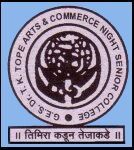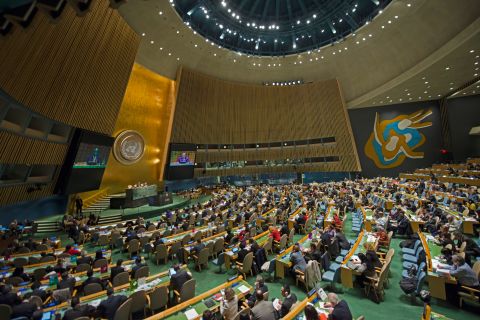Department of Political Science – Annual Report (2024–25)
Dr. T. K. Tope Arts & Commerce Night College, Parel, Mumbai
Department of Political Science – Annual Report (2024–25)
Head of Department: Prof. Shubharaj Buwa, Associate Professor
Academic Workload and Teaching Framework
- Academic Year Duration: 12 June 2024 to 1 May 2025
- NEP 2020 Implementation: This was the first year of the implementation of the New Education Policy (NEP) 2020. The college adopted the M1–M2–M3 structure, where Political Science was designated as the M3 (Major 3) subject.
- Total Teaching Load:
- FYBA: 8 lectures/week
- SYBA: 5 lectures/week
- TYBA: 9 lectures/week
- Total: 22 lectures per week
- FYBA: 8 lectures/week
- Lecture Timings: Evening sessions at 3:45, 4:45, 5:45, 6:45, 8:00, and 9:00 pm
- Break: 7:45 to 8:00 pm
- The department continues to cater to the needs of working-class students enrolled in evening programmes.
Semester-wise Course Details
FYBA – NEP 2020 Pattern (Semesters 1 & 2)
Semester 1:
- Major Paper: The Constitutional Framework – 4 credits, 4 lectures/week
- Compulsory for all 120 students
- Evaluation: 60 marks semester-end + 40 marks internal
- Internal included: quizzes, visits, activity/presentation reports, assignments
- Compulsory for all 120 students
- Vocational Skill Course (VSC): Introduction to Psephology – 2 credits
- Optional – ~20 students opted
- Evaluation: 30 marks semester-end + 20 marks internal
- Optional – ~20 students opted
- Skill Enhancement Course (SEC): Democratic Awareness through Legal Literacy – 2 credits
- Optional – ~20 students opted
- Evaluation: 30 marks semester-end + 20 marks internal
- Optional – ~20 students opted
Semester 2:
- Major Paper: Political Process in India – 4 credits
- Compulsory for all 120 students
- Evaluation as above
- Compulsory for all 120 students
- VSC: Media and Elections – 2 credits
- Optional – ~20 students
- Optional – ~20 students
- SEC: Citizens and Law – 2 credits
- Optional – ~20 students
- Optional – ~20 students
SYBA – Old Pattern (Semesters 3 & 4)
Semester 3:
- Political Theory
- Public Administration
- Compulsory for 54 students
- 100 marks each – only semester-end exams
Semester 4:
- Political Values and Ideologies
- Indian Administration
- 54 students, 100 marks each, semester-end only
TYBA – Old Pattern (Semesters 5 & 6)
Semester 5:
- World Politics
- Western Political Thought
- Politics of Modern Maharashtra
- Around 50 students
- 100 marks per paper – conducted by University of Mumbai
Semester 6:
- India in World Politics
- Indian Political Thought
- Determinants of Politics of Maharashtra
- 80 marks university exam + 20 marks project
- Projects based on syllabus themes
Assessment and Examination Performance
- Regular & ATKT Exams: Conducted as per schedule
- Results:
- Semesters 1 & 2 (FYBA) – Pass percentage a concern
- Semesters 3 to 6 – Result between 70%–80%
- Semesters 1 & 2 (FYBA) – Pass percentage a concern
Guest Lectures and Educational Visits
| Date | Event |
| 29 Aug 2024 | Lecture by PSI Bharat Gurav on Cyber Security |
| 24 Sep 2024 | Visit to Bhoiwada Police Station – FYBA students |
| 30 Sep 2024 | Lecture by Adv. Ravindra Chile on Consumer Protection Act 2019 |
| 15 Oct 2024 | Visit to Bombay High Court; and Late Justice P. B. Sawant’s office |
| 8 Feb 2025 | Talk by Mr. Prashant Shinde, Srushtidnyan, on Environmental Issues |
| 1 Mar 2025 | Lecture by Mr. Chetan Nanawre, Lokshahi Channel, on Journalism Careers |
Other Academic Contributions and Roles
- Election Duty: Prof. Buwa served as Presiding Officer during Vidhan Sabha Elections, Nov 2024
- Academic Judging: Invited as Judge for Model United Nations – SCMUN 2025 at Sathaye College on “Decarbonising the Future”, 4 Feb 2025
- Prof. Buwa was a member of the syllabus framing sub-committee of the Board of Studies of Political Science, University of Mumbai.
Future Plans (2025–26)
- NEP 2020 will extend to first four semesters (FYBA and SYBA) from next year
- Semester 5 and 6 (TYBA) will see the last batch under the old pattern
Conclusion
The department has successfully implemented NEP 2020 in its first year for FYBA and maintained academic rigour in all semesters. Through a combination of dynamic internal assessments, industry-relevant skill courses, and co-curricular engagements, the Department of Political Science has aimed at building critical citizenship, academic insight, and practical awareness among students. The contribution of past students and collaboration with external institutions added significant value.
![]()

